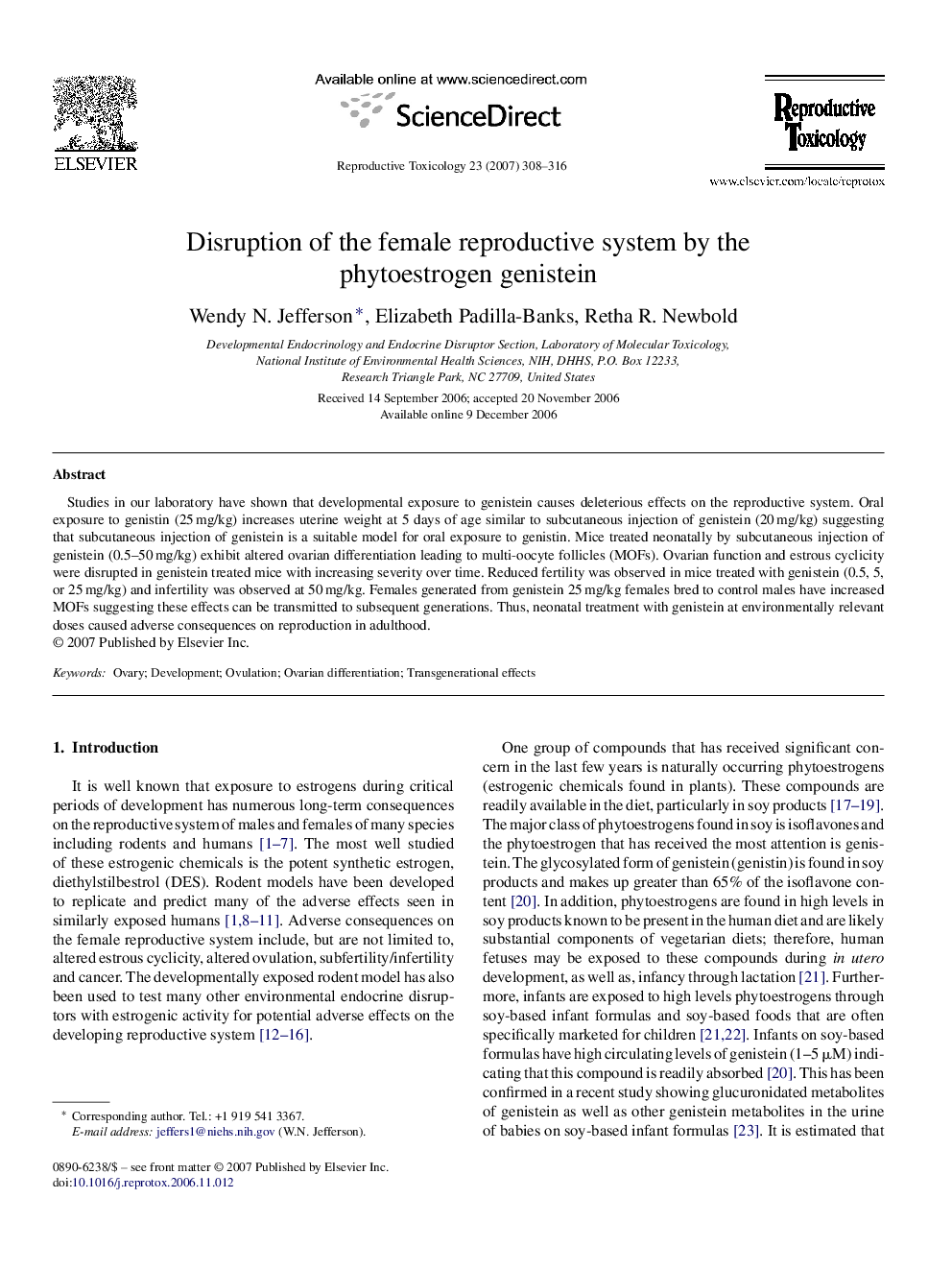| Article ID | Journal | Published Year | Pages | File Type |
|---|---|---|---|---|
| 2595327 | Reproductive Toxicology | 2007 | 9 Pages |
Studies in our laboratory have shown that developmental exposure to genistein causes deleterious effects on the reproductive system. Oral exposure to genistin (25 mg/kg) increases uterine weight at 5 days of age similar to subcutaneous injection of genistein (20 mg/kg) suggesting that subcutaneous injection of genistein is a suitable model for oral exposure to genistin. Mice treated neonatally by subcutaneous injection of genistein (0.5–50 mg/kg) exhibit altered ovarian differentiation leading to multi-oocyte follicles (MOFs). Ovarian function and estrous cyclicity were disrupted in genistein treated mice with increasing severity over time. Reduced fertility was observed in mice treated with genistein (0.5, 5, or 25 mg/kg) and infertility was observed at 50 mg/kg. Females generated from genistein 25 mg/kg females bred to control males have increased MOFs suggesting these effects can be transmitted to subsequent generations. Thus, neonatal treatment with genistein at environmentally relevant doses caused adverse consequences on reproduction in adulthood.
